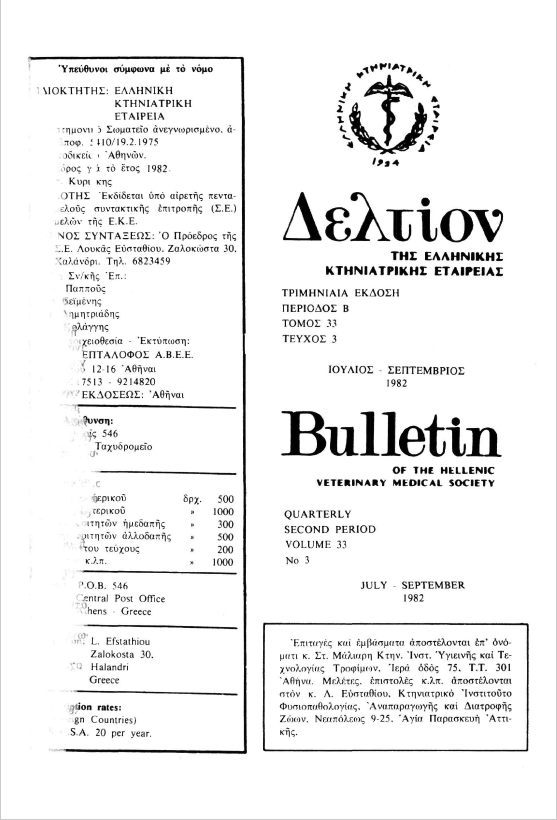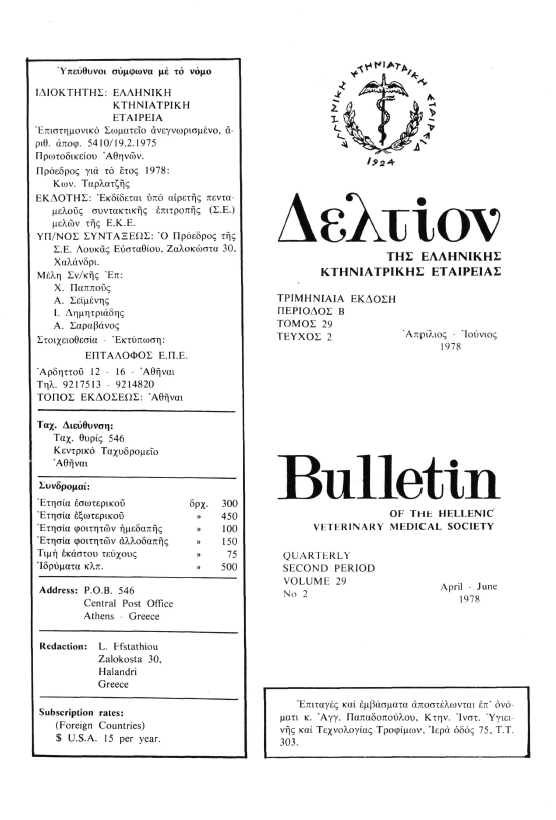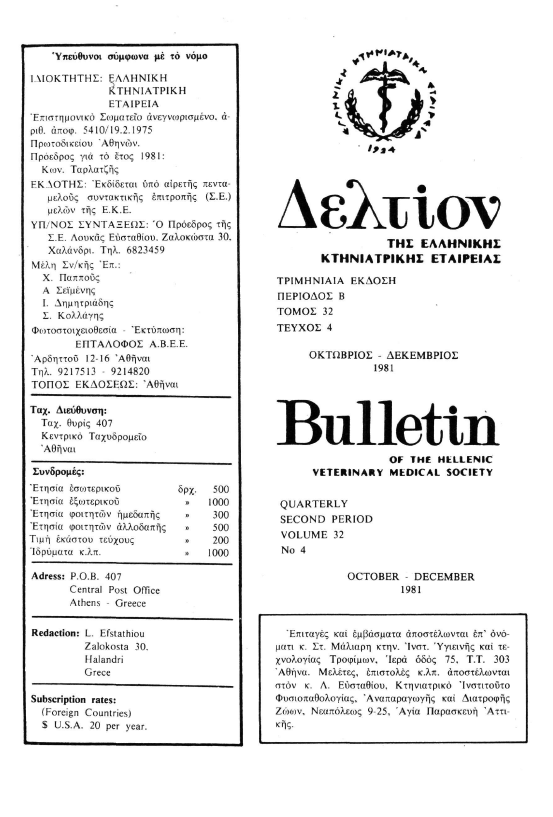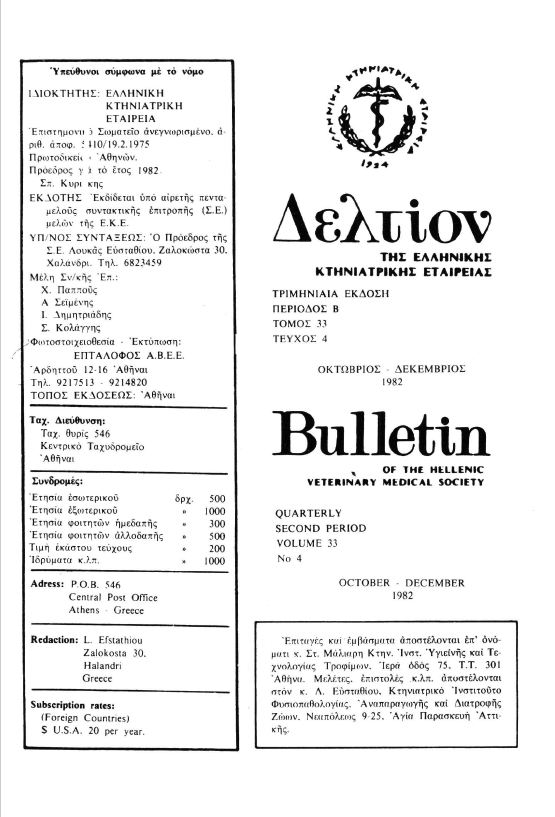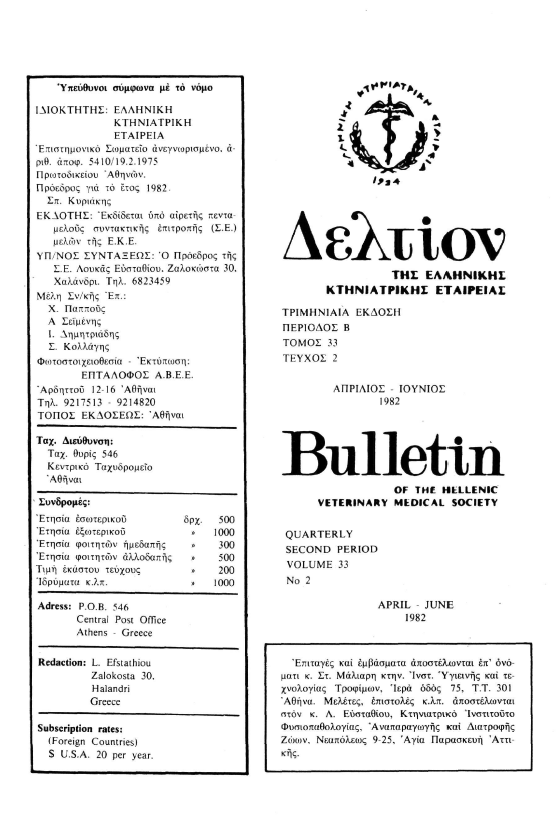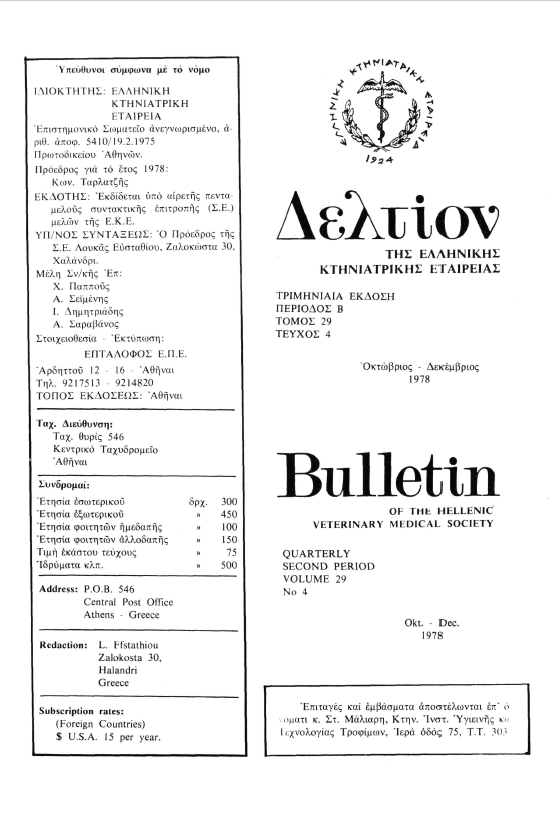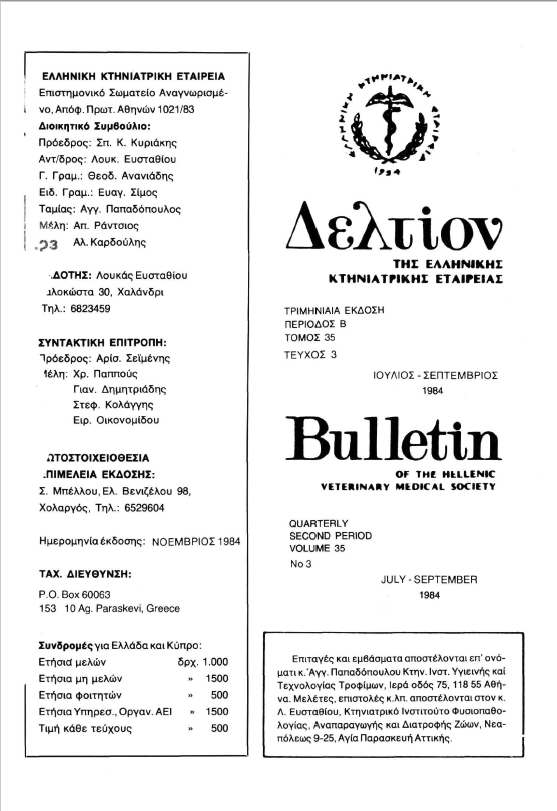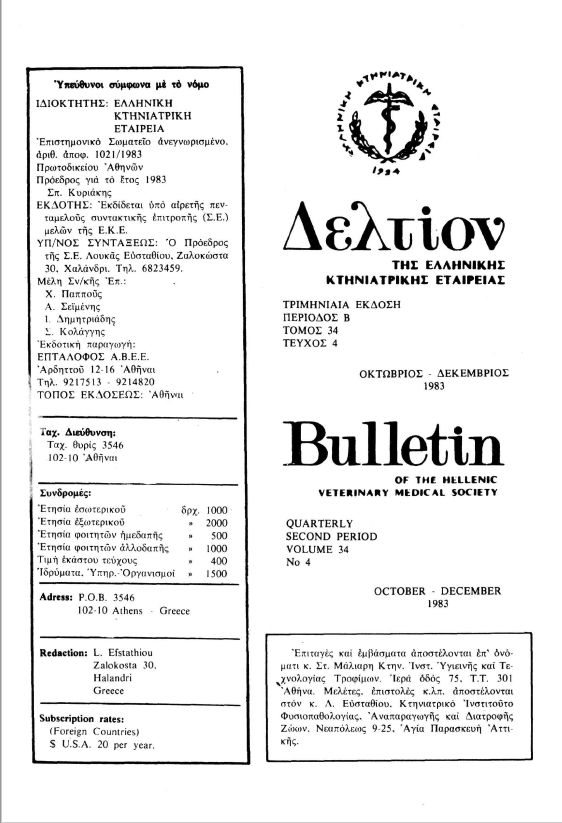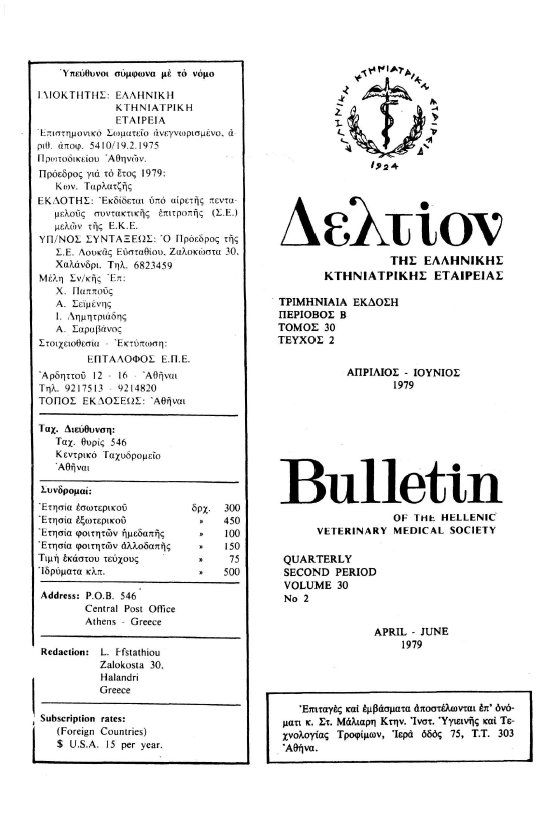Θεραπεία της πνευμονίας των μόσχων μέ τή χορήγηση από το στόμα Τυλοζίνης
Resumen
Σέ πειραματισμό πού έγινε στην περιοχή τής Β. 'Αττικής χρησιμοποιήθηκαν 40 αρσενικοί μόσχοι ηλικίας 10 ήμερων, φυλής Holstein-Friesian, πού ή εισαγωγή τους έγινε αεροπορικώς άπό τόν Καναδά καί πού εμφάνιζαν έκδηλα αναπνευστικά συμπτώματα. Οί 40 αυτοί μόσχοι χωρίστηκαν τυχαία σέ δύο ομάδες των 20. Τα ζώα της πρώτης ομάδας πήραν για 14 ήμερες συνεχώς, μέσα στό υποκατάστατο τοΰ γάλατος. 2g/τυλoζίvης (στή μορφή του τρυγικού άλατος) ώς ημερήσια δόση τό κάθε μοσχάρι. Στην άλλη ομάδα, πού χρησίμευσε ώς μάρτυρας, χορηγήθηκε θεραπευτικό σχήμα πού στό παρελθόν είχε δώσει καλά αποτελέσματα σε παρόμοιες καταστάσεις και βασίζονταν στή συνδυασμένη χρήση ένέσιμης σπεκτινομυκίνης. όξυτετρακυκλίνης και τριμεθοπρίμης + σουλφαθειαζίνης. Ή ομάδα τής τυλοζίνης (tylosin tartrate) επανήλθε γρηγορότερα στή φυσιολογική κατάσταση. Ή μέση ημερήσια αύξηση βάρους και ό δείκτης μετατρεψιμότητας τής τροφής τών ζώων τής ιδιας ομάδας βελτιώθηκε σημαντικά (Ρ<0.05) σέ ποσοστά αντίστοιχα 24% και 16,5% σέ σύγκριση μέ τους μάρτυρες. Σέ ότι άφορα τήν εργαστηριακή κάλυψη τής εργασίας αυτής, άπό 15 μοσχάρια και τών δύο πειραματικών ομάδων) απομονώθηκαν διάφορα στελέχη μυκοπλασμάτων άπό τά ρινικά εκκρίματα στην έναρξη τοΰ πειραματισμού. Τέλος, απομονώθηκαν διάφορα στελέχη E.coli άπόδείγματα κοπράνων όλων τών ζοων τού πειραματισμού και μόνο 4 άπό αυτά βρέθηκαν οτι άνηκαν σέ 2 έντεροπαθογόνους όρότυπους κατά Sojka.
Article Details
- Cómo citar
-
ΣΑΡΡΗΣ Κ., ΑΝΔΡΕΩΤΗΣ Ι., ΚΥΡΙΑΚΗΣ Σ., ΤΣΑΛΤΑΣ Κ., ΠΑΠΑΘΕΟΔΩΡΟΥ Α., & ΛΕΟΝΤΙΔΗΣ Σ. (2019). Θεραπεία της πνευμονίας των μόσχων μέ τή χορήγηση από το στόμα Τυλοζίνης. Journal of the Hellenic Veterinary Medical Society, 33(3), 233–242. https://doi.org/10.12681/jhvms.21547
- Número
- Vol. 33 Núm. 3 (1982)
- Sección
- Articles

Esta obra está bajo una licencia internacional Creative Commons Atribución-NoComercial 4.0.
Authors who publish with this journal agree to the following terms:
· Authors retain copyright and grant the journal right of first publication with the work simultaneously licensed under a Creative Commons Attribution Non-Commercial License that allows others to share the work with an acknowledgement of the work's authorship and initial publication in this journal.
· Authors are able to enter into separate, additional contractual arrangements for the non-exclusive distribution of the journal's published version of the work (e.g. post it to an institutional repository or publish it in a book), with an acknowledgement of its initial publication in this journal.
· Authors are permitted and encouraged to post their work online (preferably in institutional repositories or on their website) prior to and during the submission process, as it can lead to productive exchanges, as well as earlier and greater citation of published work.

